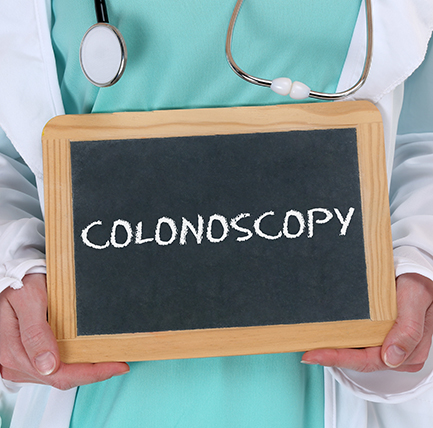Younger people are being diagnosed with colorectal cancer.
When should you get a colonoscopy? Medical experts — including the cancer specialists at Tanner — think you should have colorectal cancer screening starting at 45 or younger if you have certain risk factors:
- You’re Black, American Native or Alaska Native
- You have a history of smoking or using tobacco
- You have a history of inflammatory bowel disease
- You have a personal or family history of colorectal cancer
The best screening for colorectal cancer
A colonoscopy is considered the best, most thorough screening for colorectal cancer.
Through colonoscopy, specialists can pinpoint colorectal cancer earlier, when they are most treatable.
They can also find and remove polyps in your colon before they turn into cancer.
It’s easy to schedule your colonoscopy.
We make your colonoscopy easy. With one call, we answer all your questions (even the embarrassing ones) and tell you if you can schedule your colonoscopy directly without a pre-appointment.
- Call our helpline at 770-812-9097.
- Answer a few questions about your health.
- If you qualify, schedule your colonoscopy.
You may skip a pre-procedure appointment if you:
- Are at least 45
- Are in good health
- Have no family history of colorectal cancer
- Have no chronic conditions that increase your risk (such as inflammatory intestinal conditions like IBS or Crohn’s disease)
Improving detection with AI
We’re now using the Medtronic GI Genius™ colonoscopy, powered by AI, to help increase detection of potentially precancerous polyps.
With the power of artificial intelligence, sGI Genius™ colonoscopy detects colorectal polyps in real time, and faster than the endoscopist in 82% of cases.
This technology uses enhanced visualization to help our physicians provide you with a better colonoscopy.
Click below for a short video of what to expect from a Medtronic GI Genius™ colonoscopy.
Colonoscopy prep — here’s what you should know
During colonoscopy prep, the goal is to have a clean colon, so doctors can see as much as possible when they’re looking for abnormal areas during your colonoscopy.
Preparing for a colonoscopy is much easier than you might expect — and better tasting too. It usually starts 24 hours before your scheduled colonoscopy and may include:
- Drinking a clear liquid diet
- Not eating solid foods
- Taking a gentle colon cleansing solution or oral laxative
Your doctor will give you a specific preparation plan and instructions so you know what you can and can’t eat and when to take your laxative.
Colonoscopy locations near me
Colonoscopies can be scheduled at our hospital facilities in Carrollton, Villa Rica, Bremen or Wedowee.
However, direct-access colonoscopies are only available at the West Georgia Endoscopy Center — an outpatient center on Clinic Avenue in Carrollton.
To schedule a colonoscopy, call 770-214-2800.
Get Screened
Call 770-214-CARE to find a gastroenterologist in Carrollton, Villa Rica, Bremen or Wedowee.
Direct-Access Colonoscopy
Save cost and time with Tanner's direct-access colonoscopy.
Colorectal Cancer
How much do you know about your risk for colorectal cancer?

Find a Specialist
Find a gastro specialist by using the Find a Provider tool below or call
770-214-CARE.

Don't Fret the Prep
Fortunately, prepping for your colonoscopy isn’t as difficult as it once was.
Learn More

Patient Stories
See how Tanner helped these patients overcome colorectal cancer.